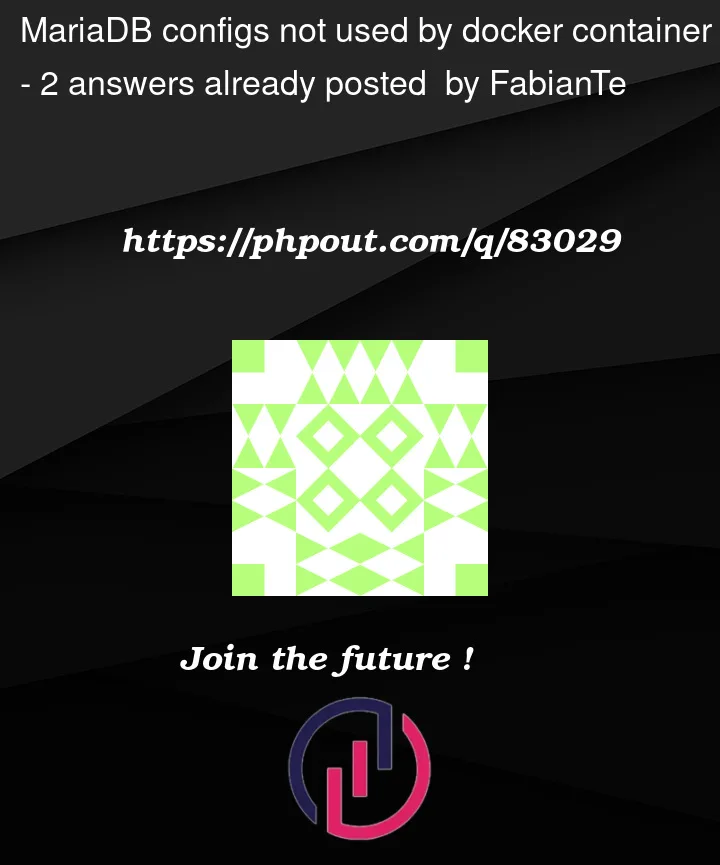I want to customize some MariaDB server configs (wait_timeout, etc.). I followed the instructions on the official Docker image and created two .cnf files inside my host dir config/mariadb which is mounted in the container via these volumes:
volumes:
- /config/mariadb:/etc/mysql/conf.d:ro
- /config/mariadb:/etc/mysql/mariadb.conf.d:ro
root@server:~# ls -l /config/mariadb
total 12
-rwxrwx--- 1 root root 263 Jun 8 13:43 mariadb-finetuning.cnf
-rwxrwx--- 1 root root 367 Jun 8 13:43 mariadb-inno.cnf
These are the config files:
[mysqld]
# * InnoDB
#
# InnoDB is enabled by default with a 10MB datafile in /var/lib/mysql/.
# Read the manual for more InnoDB related options. There are many!
# default_storage_engine = InnoDB
# innodb_buffer_pool_size = 256M
# innodb_log_buffer_size = 8M
# innodb_file_per_table = 1
# innodb_open_files = 400
# innodb_io_capacity = 400
innodb_flush_method = fsync
[mysqld]
# * Fine Tuning
#
# max_connections = 100
# connect_timeout = 5
wait_timeout = 3600
# max_allowed_packet = 16M
# thread_cache_size = 128
# sort_buffer_size = 4M
# bulk_insert_buffer_size = 16M
# tmp_table_size = 32M
# max_heap_table_size = 32M
Somehow the options have no effect and I don’t know why:
show variables where variable_name = 'innodb_flush_method'
# Variable_name Value
# innodb_flush_method O_DIRECT
Is there any better way to check why mariadb does not pick up these configs?
Update:
- Manually editing
my.cnfinside the container works but isn’t what I want to do. - Runnnig
mysqld --print-defaultswill print out... --innodb_flush_method=fsyncas result. It seems to me that this may be due to the entrypoint script/docker-entrypoint.sh?




2
Answers
Problem were file permissions.
The config files must be readable by the linux user running the database.
There may be several solutions, in my case the simplest is to apply
774file permissions so that the file is readable by every user:If your MariaDB can run with your settings, perform ‘docker exec’ to run a bash inside your MariaDB container and check if your volume mount shows the expected files in the expected location.
Then also check that the configuation or startup of MariaDB inside the container is configured to read these files at all. You could to that by providing empty files, or files with gibberish inside.
Only then start looking at the content of the files. Once you reach here, you seem to have power over the containerized database engine.